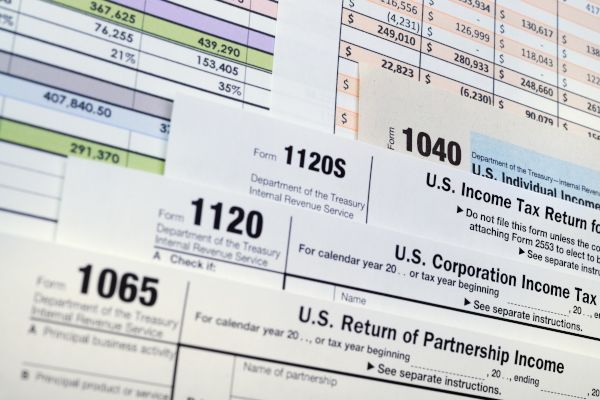
Tax season just got a little longer — 90 days longer, in fact.
Due to impacts related to the COVID-19 pandemic, the Internal Revenue Service and Treasury Department have pushed the 2019 federal tax deadline for all individual taxpayers from April 15 to July 15, 2020. In addition, some state governments are following suit with the relief effort and postponing their tax deadlines. While we all work through this trying time together, learn how changes at the state and federal levels could impact your filing requirements, what else you should know about the postponement, and more.
What’s changing
Federal tax deadline
At the federal level, the deadline for filing income tax returns due on April 15, 2020, is now July 15, 2020. Also, for all payments due on April 15, 2020, the IRS will charge no penalties or interest, allowing payments to be deferred until the new deadline. Estimated tax payments due on April 15, 2020, are also deferred and will be due July 15, 2020. This means U.S. taxpayers can wait to pay their federal balances due. It gives those who owe money more time to save — or more time to earn interest on their funds — before turning the balance over to Uncle Sam.
While U.S. taxpayers have some additional time to pay their balances due, the IRS recommends that those who may be expecting refunds to file as soon as possible. And, according to the IRS, “Most tax refunds are still being issued within 21 days.”
Another related change at the federal level concerns 2019 health savings account (HSA) and individual retirement arrangement (IRA) contribution deadlines. The IRS has provided guidance that the deadline for contributions to these accounts will also be postponed. Like the tax deadline, the last day to contribute to these accounts is July 15, 2020. So, if you’d like to fund your IRA or HSA for the 2019 tax year, you now have more time to arrange your contributions. You can learn about the IRS’s eligibility and contribution limits for IRAs here and HSAs here.
State tax deadlines
CO
Colorado issued an executive order to “Extend the Income Tax Payment Deadlines Due to the COVID-19 Disaster Emergency” on March 20, 2020. Like federal taxes, Colorado state tax filing and payments are now due July 15, 2020. Similarly, the state will charge no penalties or interest due to the deadline change, with Governor Polis ordering that “estimated payments due on and after April 15, 2020 but on or before June 15, 2020, may now be paid any time on or before July 15, 2020 without penalty.” In addition, some local governments are extending deadlines for property taxes as well as sales and use taxes.
CA
The State of California Franchise Tax Board (FTB) has also moved state tax filing and payment deadlines to July 15, 2020, “due to the COVID-19 pandemic.” This includes 2019 tax return filing and tax payments due along with “2020 1st and 2nd quarter estimate payments.”
Other states
In other states, changes vary. Some have kept their original tax deadlines while others have postponed theirs to July 15 and even later in July, so it’s important you check with your state.
One thing that’s not changing: If you file an extension, that deadline is still October 15, 2020.
Strategize These Changes
Where does all of this leave you?
If you’ve already filed your 2019 tax returns, you likely don’t need to make any changes. If you’re expecting a federal refund, you can track its progress using the IRS’s Get Refund Status tool.
Haven’t filed yet? You still have time to file your federal taxes with the deadline postponement, but remember to check your state deadline to avoid any penalties or interest due to filing late. And be sure to also check with your tax preparer to see if you could change the outcome by contributing to an IRA or HSA, if eligible.
In either scenario, if you have questions about how the deadline change could impact your 2019 taxes, your 2020 tax planning, or your financial plan overall, schedule some time to chat with your tax preparer and the other financial professionals on your team.
Tax Resources for Help During Challenging Times
